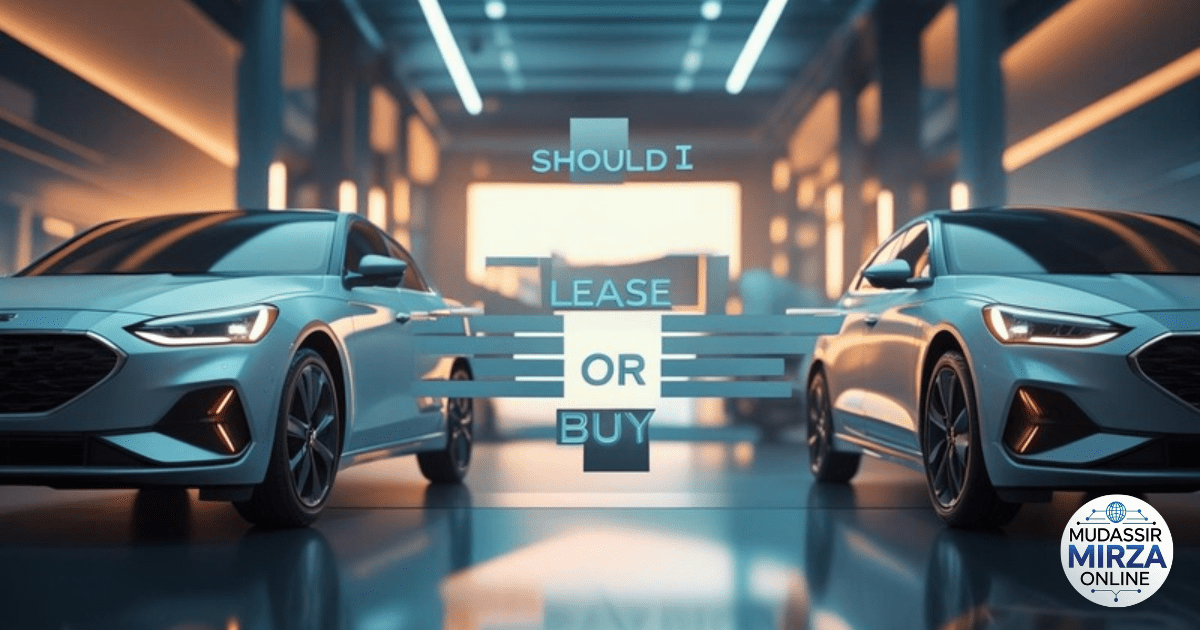Do You Want to Own Your Car Eventually?
Owning a car gives you flexibility and long-term value. Once your auto loan is paid, you have full car ownership with no payments. You can sell it, trade it in, or drive it for years. That gives you equity in a car, which leasing never does.
Leasing is better for those who like short-term use or want to avoid the hassle of used car financing or resale. At the end of the lease, you can walk away or do a lease buyout if you’ve fallen in love with the vehicle.
How Important Is Driving a New Car Every Few Years?
People who love the latest car models often prefer to lease a car. Every few years, you return your current ride and get a brand-new one with the newest tech, features, and safety updates. It’s like always having a fresh phone—but for your driveway.
On the flip side, if you’re not excited by new features and want a long-term car investment, buying gives you that freedom. You can keep a reliable car for 8–10 years or more, saving thousands over time.
Pros and Cons of Leasing a Car
Leasing comes with auto lease incentives that make it appealing. You get lower monthly costs, and your vehicle is usually under warranty, which cuts down on car maintenance costs. You avoid worries about resale or trade-in value.
But it’s not perfect. The mileage limits can be tough. Damage to the vehicle could lead to lease penalties. And since you don’t own the car, you never build car equity, even after years of payments.
Buying gives you the full freedom of car ownership. You can customize your car, drive as much as you want, and not worry about lease rules. You can also sell, trade in, or pass the car on to a family member.
However, the cost is higher upfront. You’ll have to deal with car depreciation, especially if you buy a new car. And after the warranty ends, those car maintenance costs become your full responsibility.
Special Considerations: Used Cars, EV Incentives, and More
If budget matters most, consider used car financing. A lightly used car can save you thousands, and you avoid the worst of car depreciation. Just make sure to get a full inspection before buying.
For those going green, leasing an EV comes with perks. You might qualify for an electric vehicle tax credit, and many dealers offer strong EV lease credit offers. Electric vehicle lease deals are growing fast, especially for popular models like the plug-in hybrid Toyota Prius Prime or Tesla Model 3.
How to Decide: Lease or Buy Based on Your Lifestyle
Ask yourself how often you drive, how much you want to spend each month, and how long you plan to keep your car. If you commute far or road trip often, buy a car. If you like flexibility, low monthly payments, and always driving new car, lease a car.
If you’re facing financial hardship or just want a short-term vehicle option, leasing might make more sense right now. But if you’re building a future and want assets, buying offers more stability in the long run.
Final Verdict: Should You Lease or Buy a Car?
There’s no one-size-fits-all answer. The best decision depends on your goals. Do you want to build car equity and keep your car long-term? Then buying is probably right. Do you want flexibility and lower costs today? Then leasing may work better.
Think about how long you’ll keep the car, how far you drive, and your budget. Take advantage of car finance tools online to compare costs. Also, check for new car lease deals or loan promotions from dealers and banks.
In the end, your best choice will come from a balance of logic and lifestyle. What’s most important to you—owning the car or driving a newer one every few years?
✅ Table: Quick Comparison – Should You Lease or Buy a Car?
| Feature | Lease | Buy |
|---|---|---|
| Ownership | No (lease a car) | Yes (buy a car) |
| Upfront Cost (down payment) | Lower | Higher |
| Monthly Payment | Lower (monthly payments) | Higher at first |
| Mileage Flexibility | Limited (mileage limits) | Unlimited |
| Long-Term Cost | Higher overall | Lower over time |
| Customization | Limited | Unlimited |
| Incentives | auto lease incentives, EV lease credit | tax credit for EV lease, rebates |
| Good for… | short-term vehicle options, tech lovers | long-term car investment seekers |
Have you ever leased a car or bought one? Which worked better for you, and why? Share your experience in the comments!
For info on electric vehicle tax credits and EV lease credits, the official U.S. Department of Energy – Alternative Fuels Data Center has up-to-date federal and state incentives.


